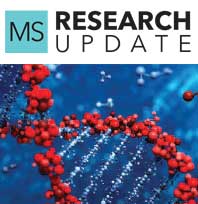MD1003

In this Update
FDA-Approved Medications: Recently Approved
Experimental Medications: Administered Orally
Company: MedDay Pharmaceuticals
- Oral medication being studied at up to 300 mg per day
- Being studied in SPMS and PPMS
Previous: CNM-Au8 | Next: Stem Cell Therapies
The oral biotin-based medication MD1003 did not significantly affect disability progression in patients with secondary- or primary-progressive MS (SPMS, PPMS) in a pivotal Phase III clinical trial, according to the company developing MD1003. Those results run counter to a previous small pilot study, which showed evidence that biotin at high doses might slow disability and progression in MS.72
Biotin is a B-group vitamin (vitamin B7) commonly found in over-the-counter supplements. Biotin activates enzymes involved in energy production and development of myelin, the protective sheath around the nerve cells of the brain and spinal cord. Researchers are examining whether high-dose biotin can promote myelin repair by activating an enzyme involved in myelin synthesis and by enhancing energy production in damaged nerves.
MD1003, formulated as a capsule taken three times daily, is a highly concentrated formulation of biotin. The dosages being tested in clinical trials (100 to 300 milligrams daily) are several thousand times the recommended daily intake of biotin. The Food and Drug Administration (FDA) sets the recommended daily allowance for biotin at 0.3 milligrams per day.73
MedDay Pharmaceuticals, the company developing MD1003, says it will continue to evaluate the data and confer with regulators in assessing potential next steps.72
